We are heading to Nepal and have found some great tickets. Since it’s a long flight, we want to make the most of our journey by seeing as much as possible along the way. We plan to make a longer stop in Delhi to explore the city and see everything we can in one or two days. Our good friend Natela, who is in love with India, recommended her favorite places for us to visit. Let’s dive in and see what Delhi has to offer.





Delhi, the bustling capital of India, is a vibrant blend of history, culture, and modernity. Whether you’re a history buff, a foodie, or a shopaholic, Delhi has something to offer everyone. With only two days to explore, it might seem challenging to experience all that this incredible city has to offer. However, with a well-planned itinerary, you can cover the major highlights and get a taste of Delhi’s unique charm. In this guide, we’ll take you through the must-see sights and hidden gems that will make your brief stay in Delhi unforgettable.
Jama Masjid







The Jama Masjid (the Masjid-i Jehan-Numa, lit. ’World-reflecting Mosque’) was built between 1650 and 1656 as a part of Shah Jahan’s new capital in Delhi, Shahdjahanabad (today Old Dalhi). At the time of its construction, it was the largest mosque in the Indian subcontinent. Having been built on a hill, the mosque is situated on a plinth elevated 10 meters above the surrounding city. The complex is oriented to the west, towards Mecca.
The inner courtyard of the mosque can accommodate up to twenty-five thousand believers simultaneously. One of the relics is a copy of the Qur’an written on the skin of a deer.
Address: Jama Masjid, Old Delhi, Delhi, 110006, India
Phone: +91 11 2336 5358
Website: delhitourism.gov.in
Location: Off Netaji Subhash
Marg, west of Red Fort
Metro Station: Chawri Bazaar
Open: All days of the week
Timings: 7am to Noon,
1.30pm to 6.30pm.
Tourists not allowed during prayer hours
Entry Fee for Indian is Free
Entry Fee for Foreigner is Rs. 300/-
Photography: Free
Qutub Minar





The QutubMinar, also spelled as QutbMinar and QutabMinar, is a minaret and “victory tower” that forms part of the Qutb complex, which lies at the site of Delhi’s oldest fortified city, Lal Kot, founded by the Tomar Rajputs. It is a UNESCO World Heritage Site in the Mehrauli area of South Delhi (since 1993). It is one of the most visited tourist spots in the city, mostly built between 1199 and 1220. The diameter of the base is 14.74 m, the diameter of the upper part of the tower is 3.05 m. The hight of the minaret is 72,6 m.
The Minar is surrounded by several historically significant monuments of the Qutb complex.
The mosque complex is one of the earliest that survives in the Indian subcontinent.
Address: Seth Sarai, Mehrauli, New Delhi, Delhi 110030, India
Phone: +91 11 2469 8431
Website: delhitourism.gov.in
Open from Sunrise to 08:00pm
Entrance Fee:
Citizens of India and visitors of SAARC (Bangladesh, Nepal, Bhutan, Sri Lanka, Pakistan, Maldives and Afghanistan) and BIMSTEC Countries (Bangladesh, Nepal, Bhutan, Sri Lanka, Thailand and Myanmar) – Rs.50 per head (Cash Payment)
Rs.35 per head (Online Payment)
Others: Indian Rs. 600/- per head (Cash Payment)
Indian Rs. 550/- per head (Online Payment) (children up to 15 years free)
Red Fort (Lal Qila)





The Red Fort or Lal Qila is a historic fort in Old Delhi, that served as the main residence of the Mughal Emperors. Emperor Shah Jahan commissioned construction of the Red Fort on 12 May 1638, when he decided to shift his capital from Agra to Delhi. Originally red and white, its design is credited to architect Ustad Ahmad Lahori, who also constructed the Taj Mahal. The fort represents the peak in Mughal architecture under Shah Jahan, and combines Persianate palace architecture with Indian traditions. The Red Fort was designated a UNESCO World Heritage Site in 2007 as part of the Red Fort Complex.
Address: Netaji Subhash Marg, Lal Qila, Chandni Chowk, New Delhi, Delhi, 110006, India
Phone: +91 11 2327 7705
Website: delhitourism.gov.in
Red Fort Delhi Entry Fee:
- Rs. 35 per person for Indians
- Rs. 500 per person for Foreign Tourists
- Rs. 25 for Video Camera
- Rs. 80 per person for adults on weekends (Light & Sound show)
- Rs. 30 per person for children on weekends (Light & Sound show)
- Rs. 60 per person for adults on weekdays (Light & Sound show)
- Rs. 20 per person for children on weekdays (Light & Sound show)
Humayun Tomb
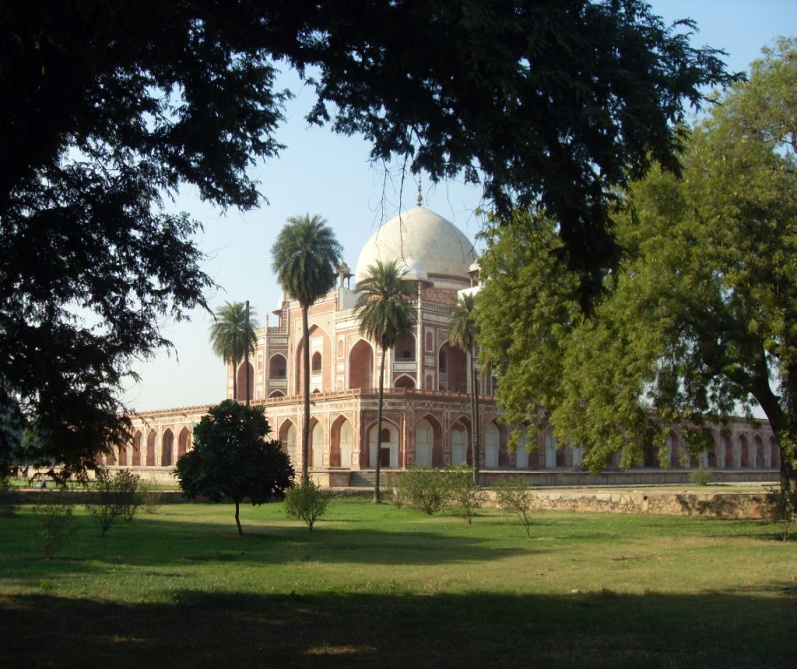




The tomb of Humayun was built by the orders of his first wife and chief consort, Empress Bega Begum (also known as Haji Begum). Construction began in 1565 and was completed in 1572; it cost 1.5 million rupees, paid entirely by the Empress. Bega Begum had been so grieved over her husband’s death that she had thenceforth dedicated her life to a sole purpose: the construction of a memorial to him than would be the most magnificent mausoleum in the Empire. Bega Begum supervised the construction of the tomb after returning from Mecca and undertaking the Hajj pilgrimage.
Address: Hazrat Nizamuddin Aulia Dargah, Mathura Rd, Nizamuddin, Nizamuddin East, New Delhi, Delhi 110013, India
Phone: +91 11 2435 5275
Location: Opp. Dargah Nizamuddin, Mathura Road
Metro Station: JLN Stadium
Open: Daily
Timings: Sunrise to sunset
Entry Fee: 40 (Indians), 600 (foreigners)
Photography Charges: Free ( 25 for video filming)
Lotus Temple
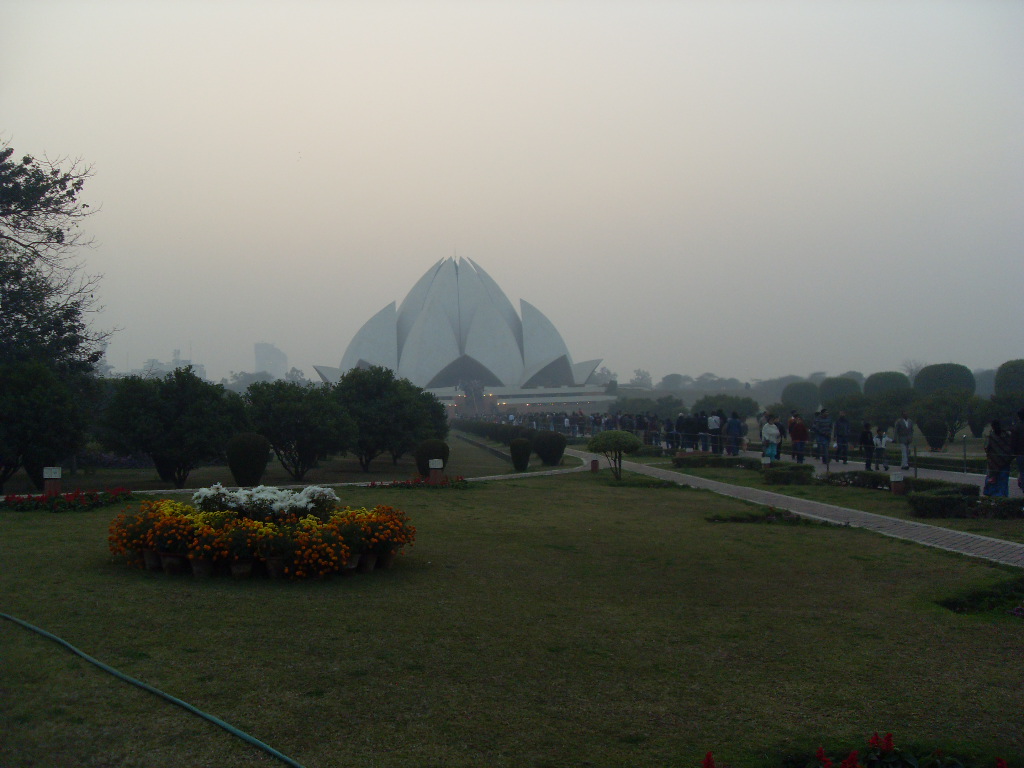
The Lotus Temple is a Bahá’í House of Worship that was dedicated in December 1986. Notable for its flowerlike shape, it has become a promimemt attraction in the city. Like all other Bahá’í Houses of Worship, the Lotus Temple is open to all, regardless of religion or any other qualification. The building is composed of 27 free-standing marble-clad “petals” arranged in clusters of three to form nine sides, with nine doors opening onto a central hall with a height of slightly over 34 meters and a capacity of 1,300 people. The Lotus Temple has won numerous architectural awards and has been featured in many newspaper and magazine articles.
Address: Lotus Temple Rd Bahapur, Kalkaji, New Delhi, Delhi 110019, India
Phone: +91 11 2644 4029
Website: https://bahaihouseofworship.in/
General admission: FREE
Gurudwara Bangla Sahib

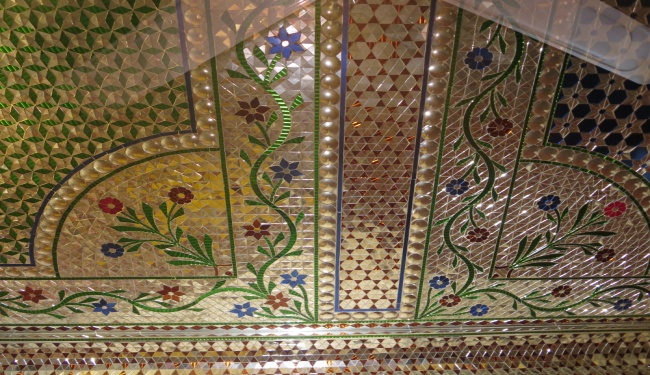

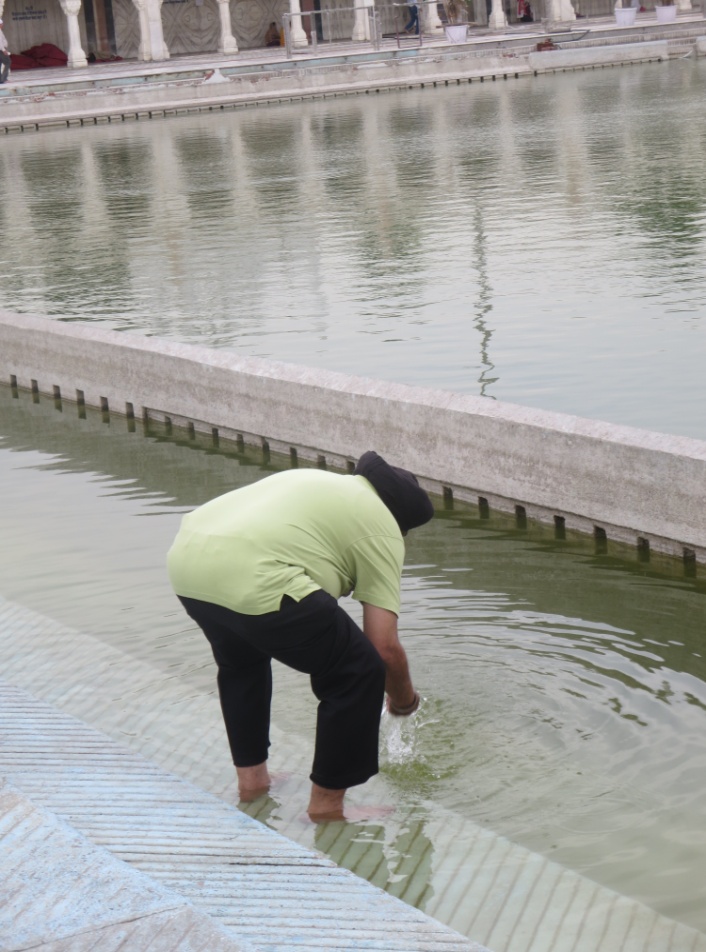
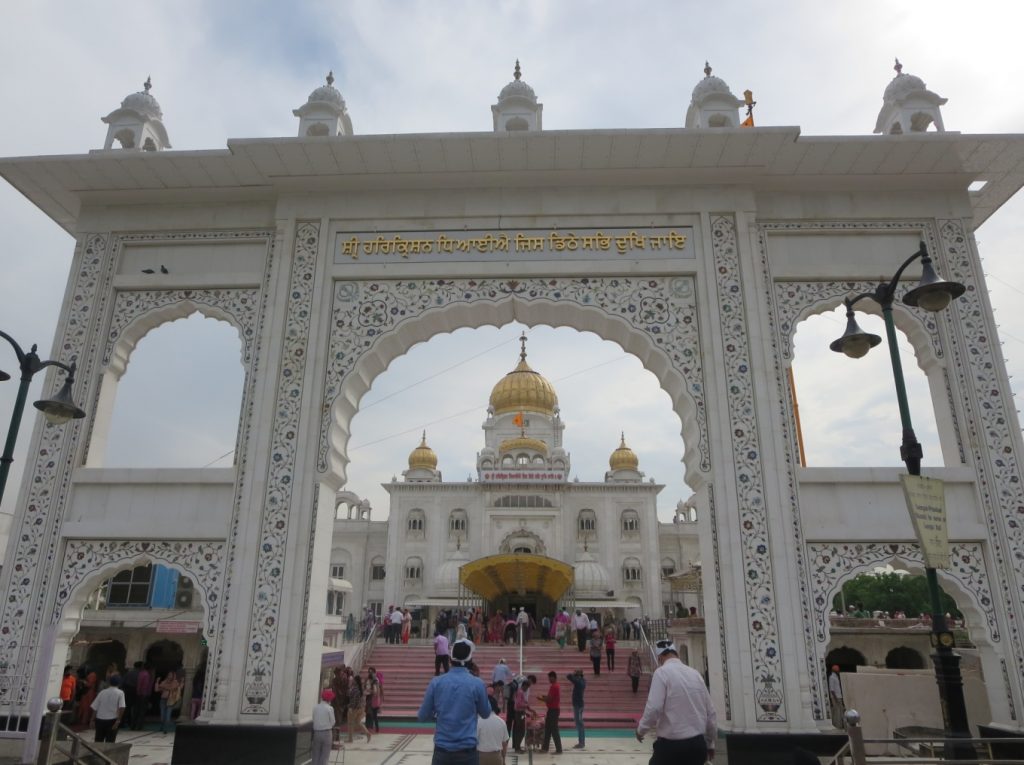
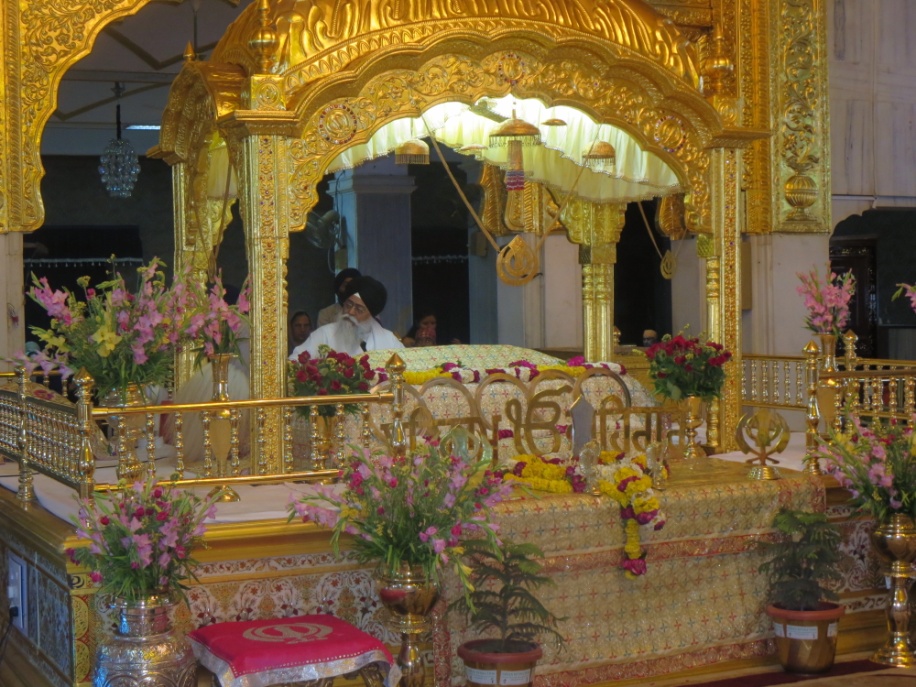
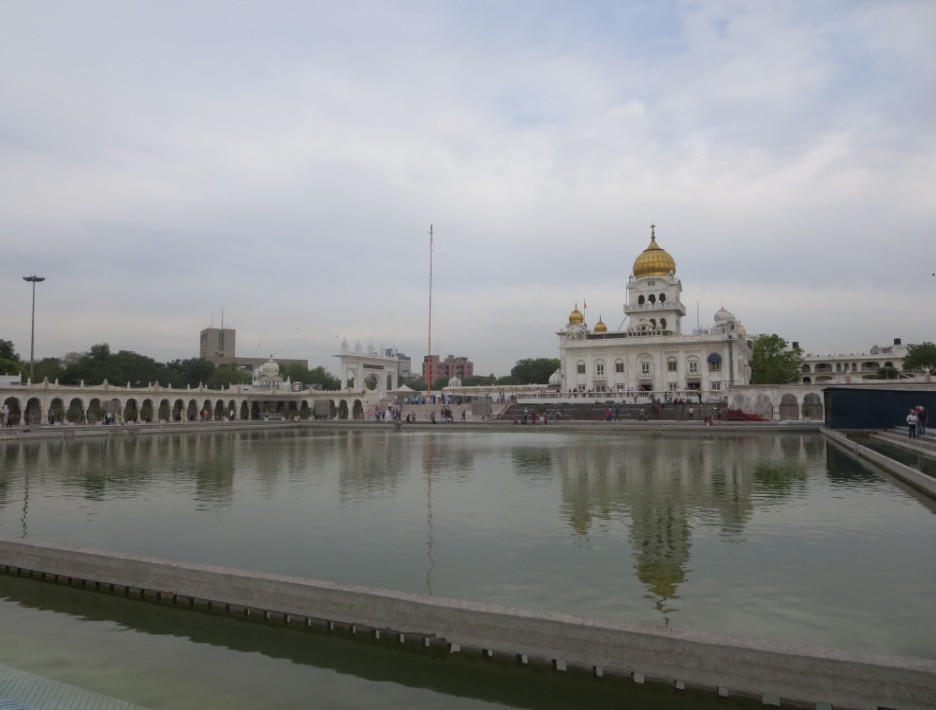

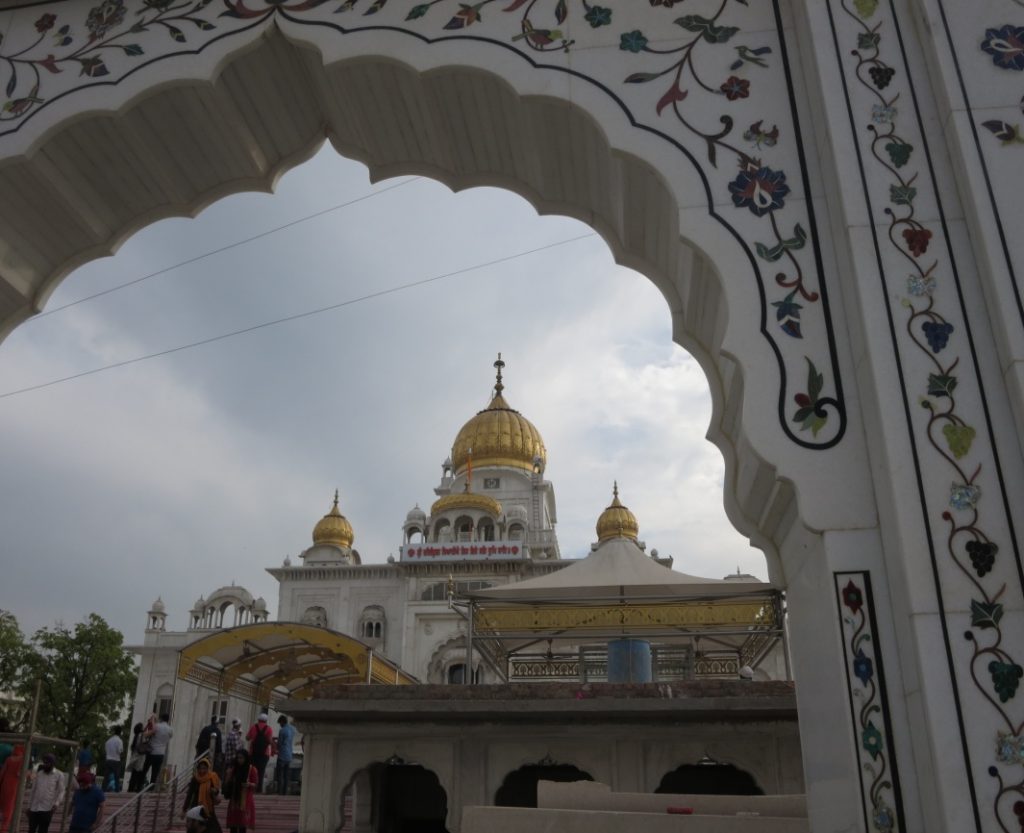
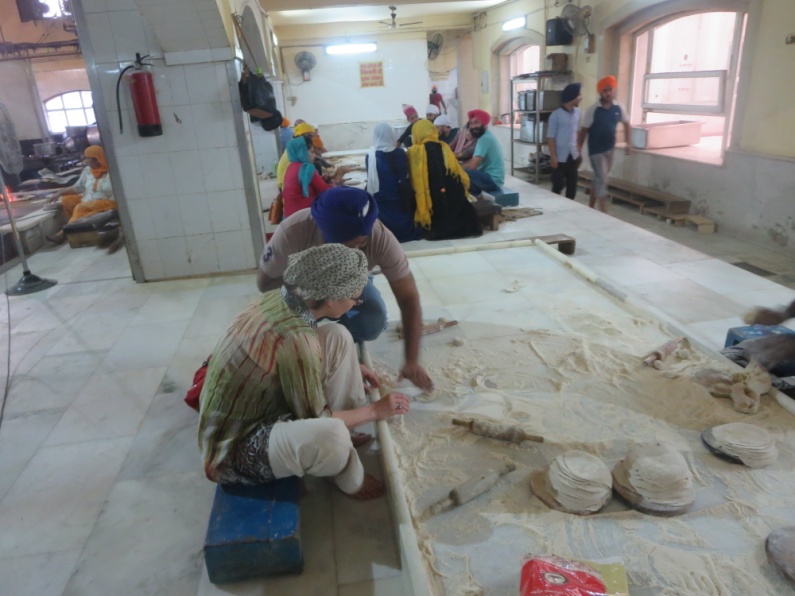
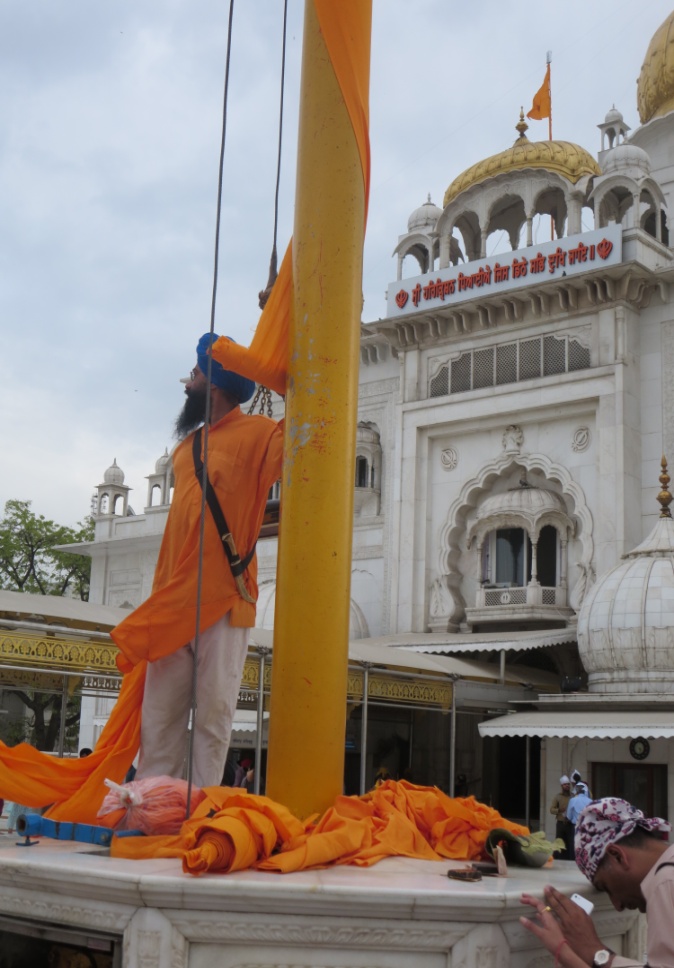
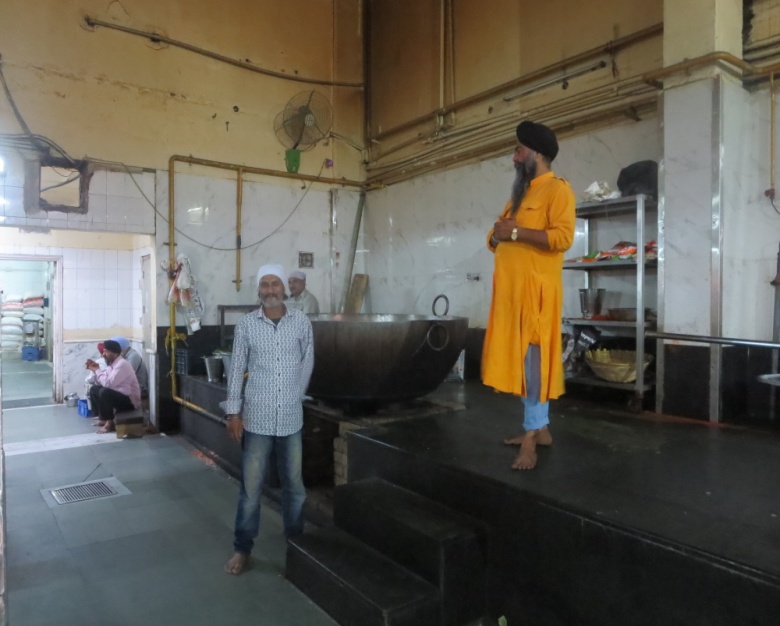
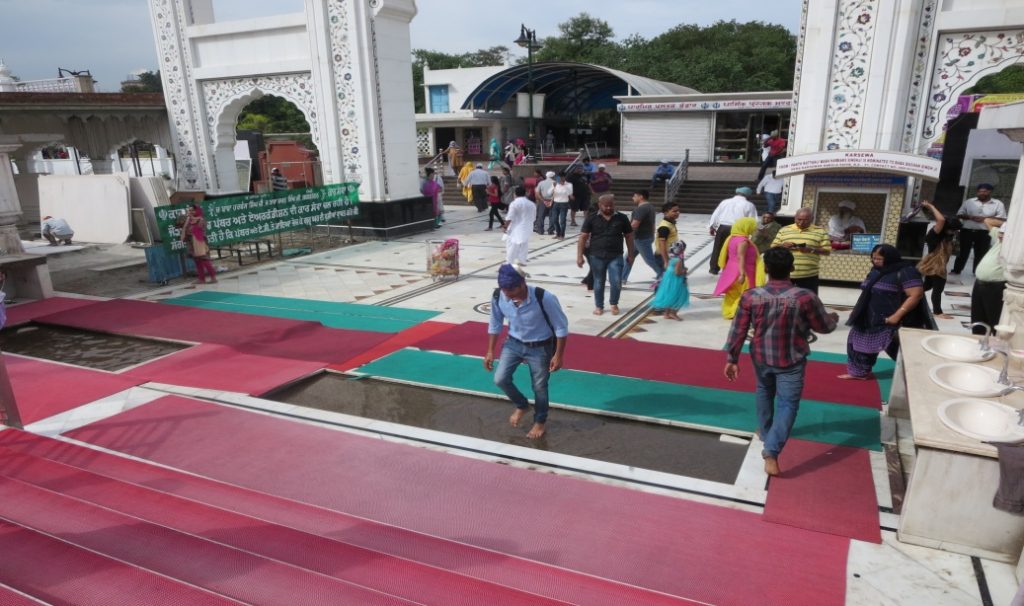
Gurudwara Bangla Sahib is one of the most prominent Sikh gurdvara, or Sikh house of worship, and known for its association with the eighth Sikh Guru, Guru Har Krishan, as well as the holy pond inside its complex, known as the “Sarovar.”
It was first built as a small shrine by Sikh General Sardar Baghel Singh in 1783, on the bungalow donated by king Raja Jai Singh of Amer, who supervised the construction of nine Sikh shrines in Delhi in the same year.
It is situated near Connaught Place on Baba Kharak Singh Marg and it is instantly recognisable by its golden dome and tall flagpole, Nishan Sahib.
Address: Hanuman Road Area, Connaught Place, New Delhi, Delhi 110001, India
Phone: +91 11 2371 2580
Website: www.dsgmc.in
General admission: FREE
On the streets of Delhi
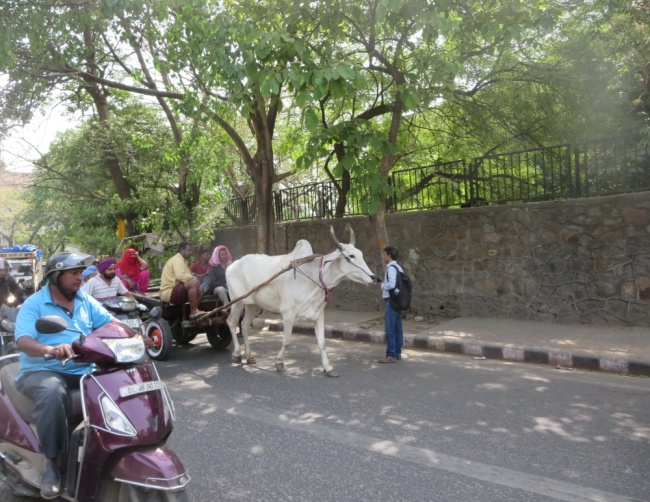
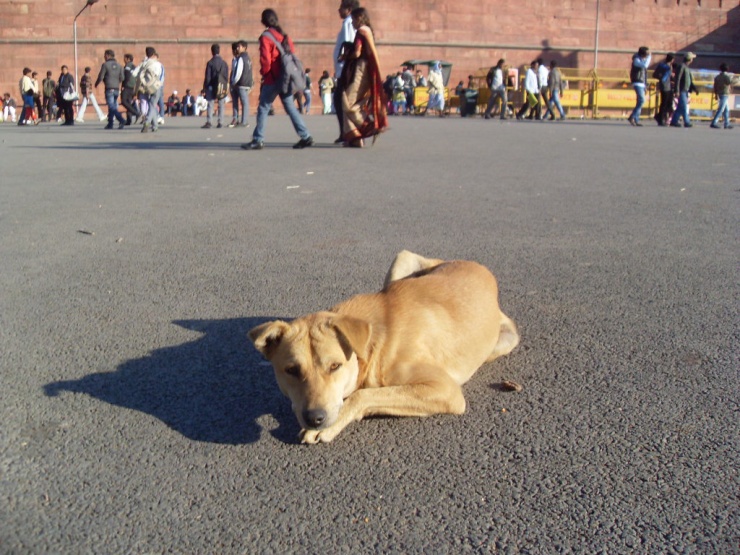
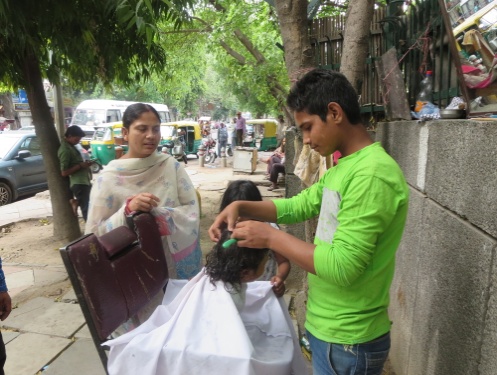
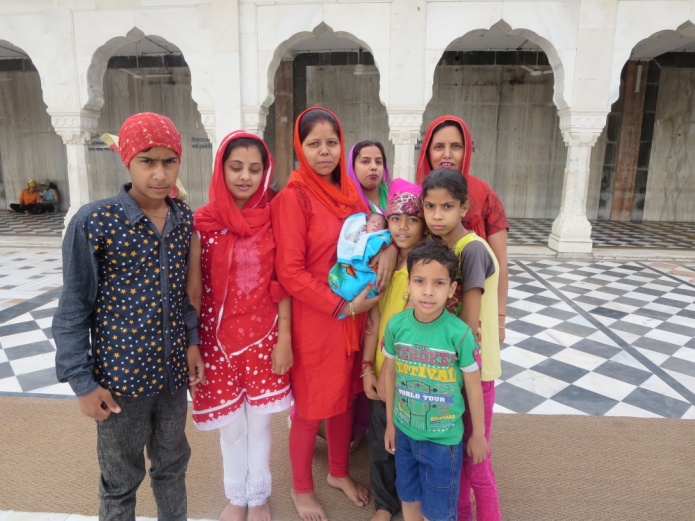
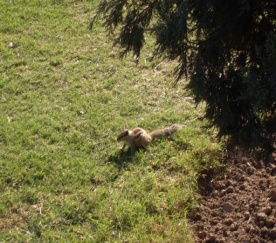
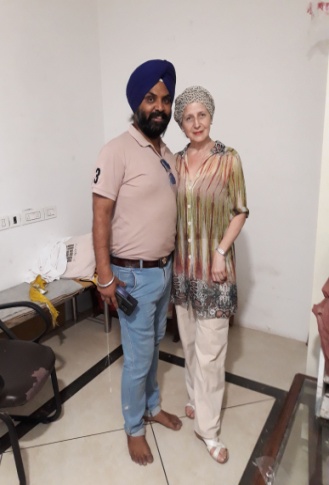
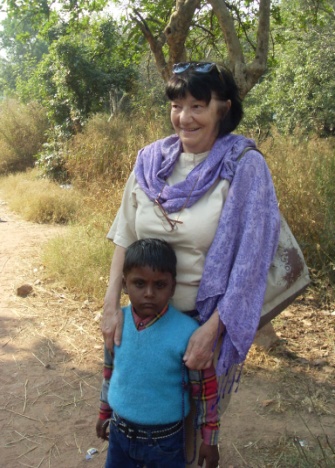
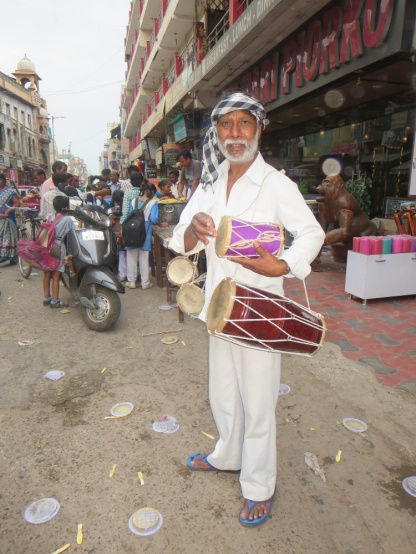
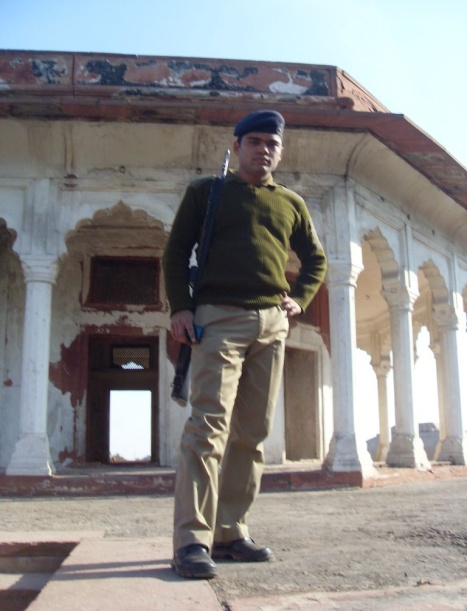
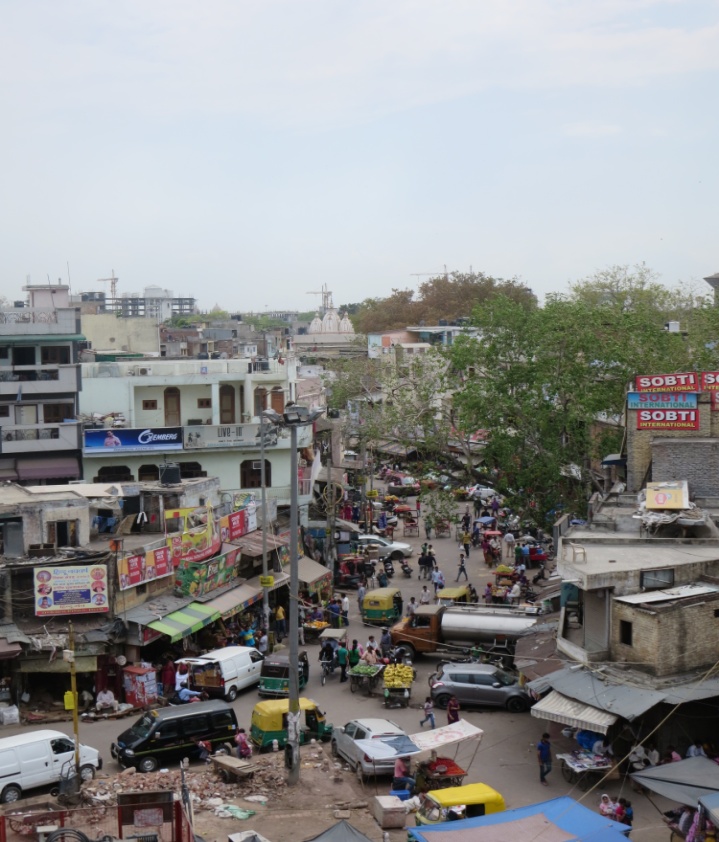
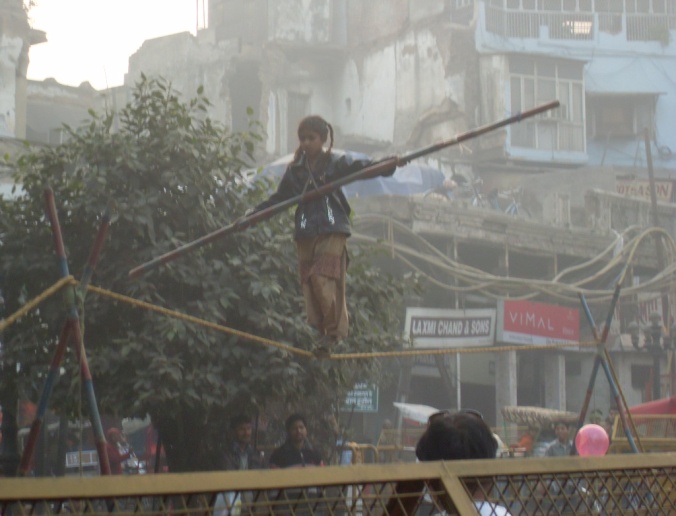
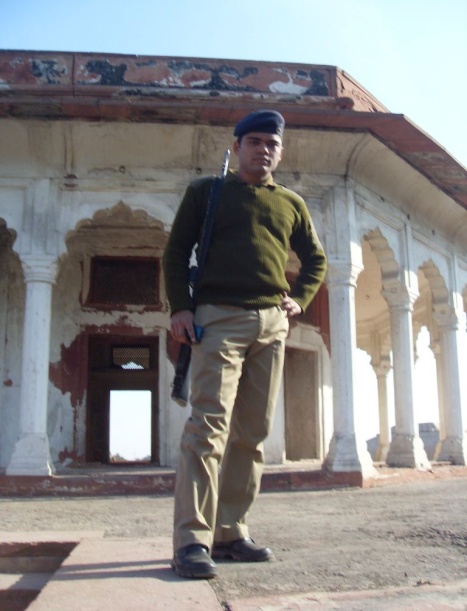
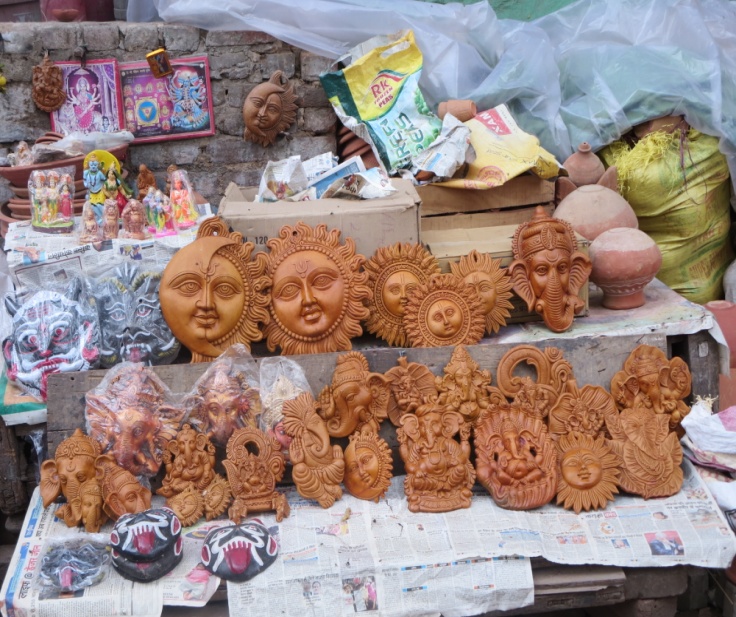
Photo Credit: Natela

